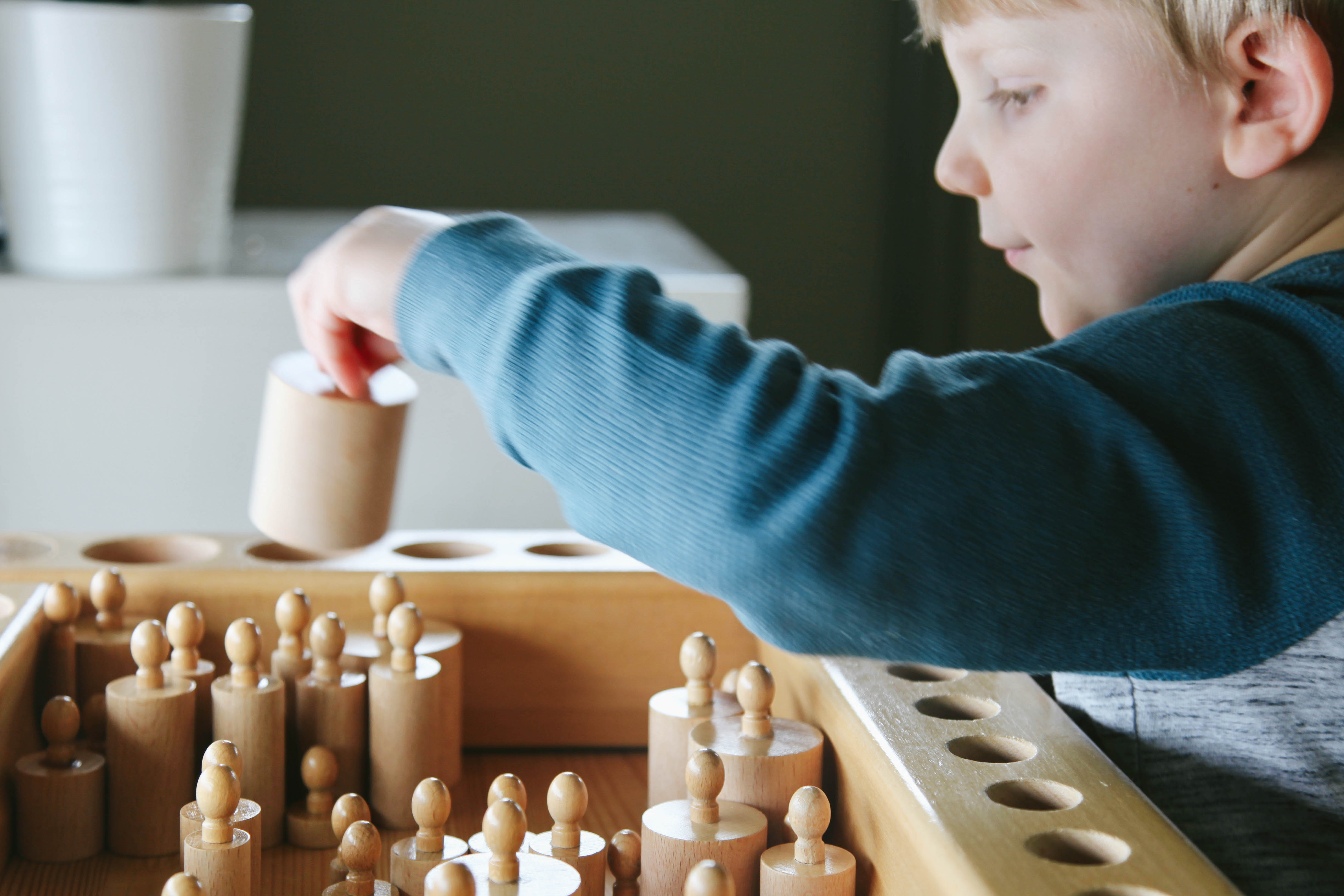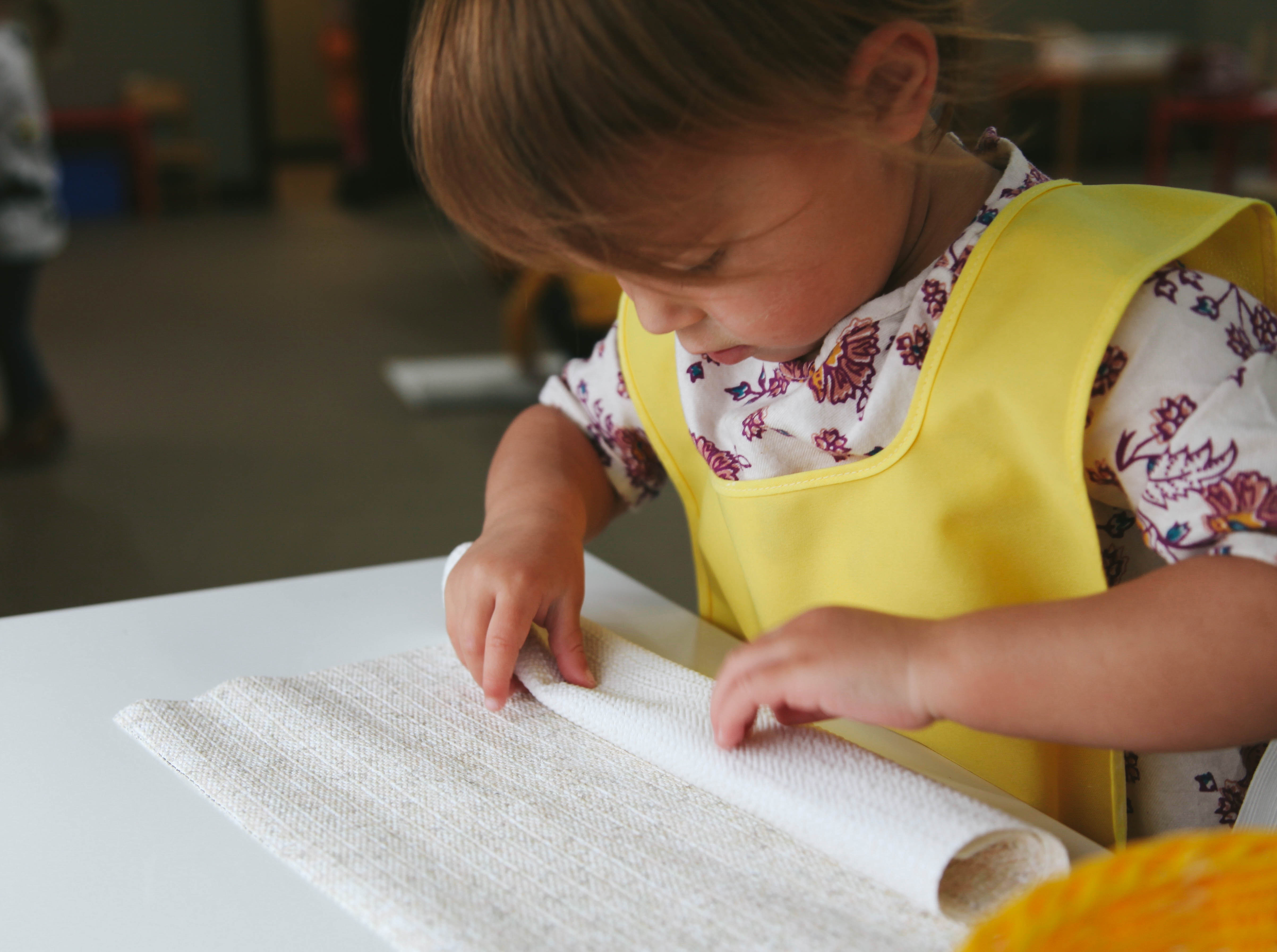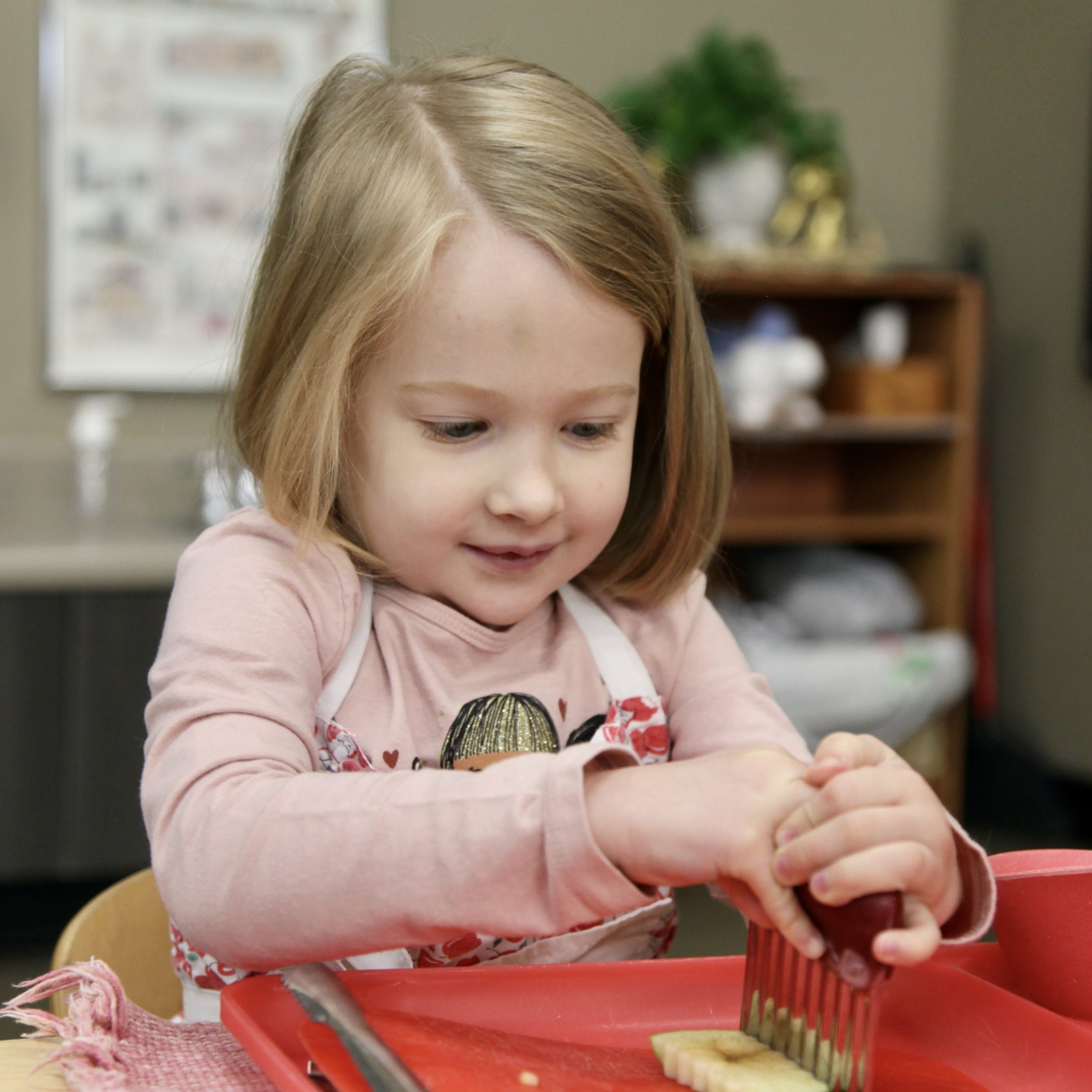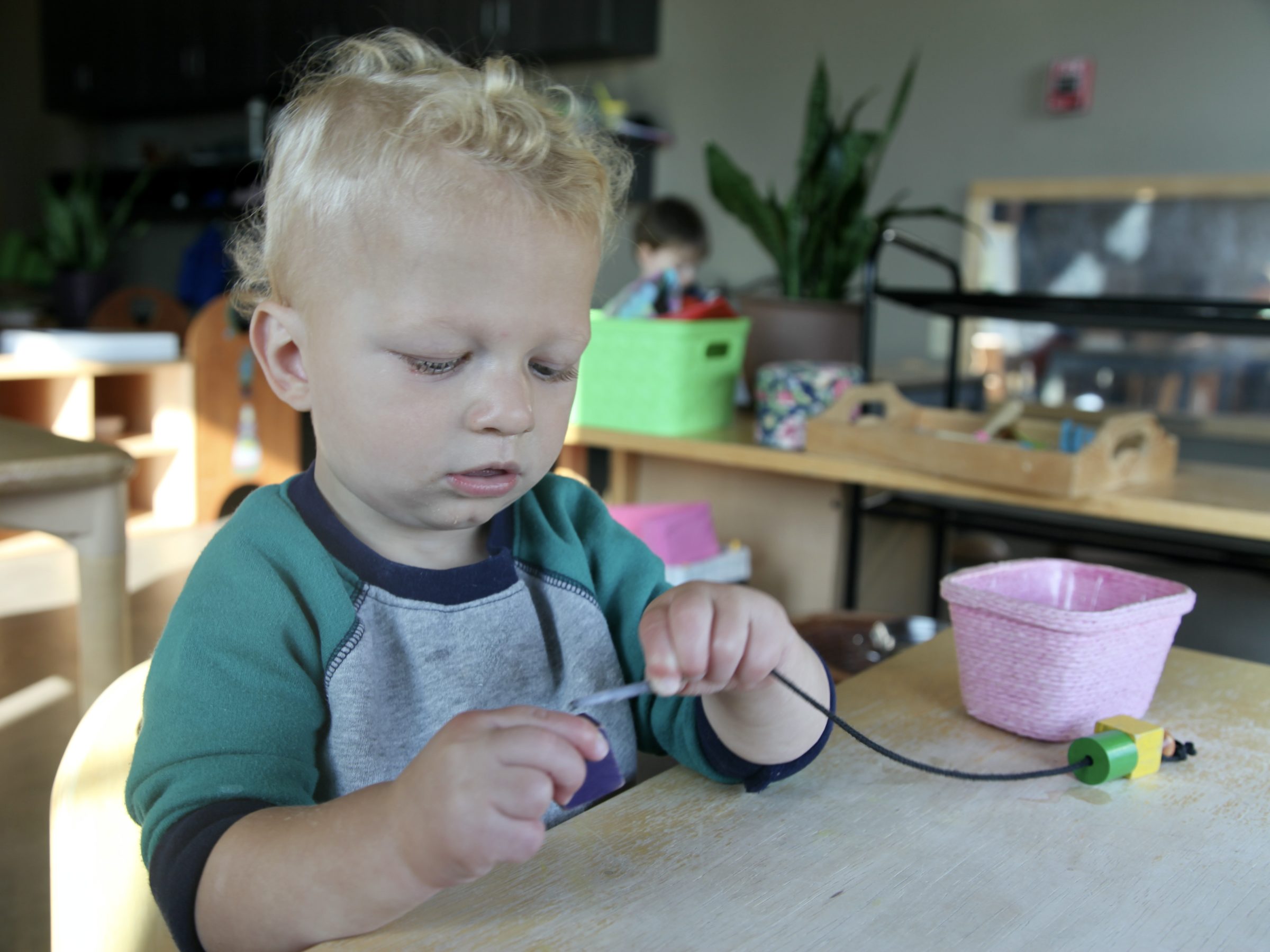What Montessori Taught Me
Podcasts
For a podcast of this post, listen here or subscribe on iTunes.
This weekend, I had a homeowner adventure. The sink was slow and I didn’t really want to call a plumber.
After dinner, I cleaned things out from under the sink, got a towel handy, got a flashlight and my pink multi-tool, and began systematically taking apart the sink. When it was clear cleaning out the p-trap (new vocabulary!) wasn’t going to cut it, I took apart the pop-up, and all the other pieces, until the drain was clear.
I had the great gift of attending a Montessori school through Elementary, and I truly believe it shaped the way I look at the world. There are certain things where it’s crystal-clear: math, in general, or balancing equations in chemistry, or geometry, or looking for common threads among areas of study or in deeper learning.
There’s an iconic Montessori material called the Binomial Cube. It’s a three-dimensional cube puzzle composed of 8 blocks, and it’s actually a preparation for algebra. This is the only way I can describe how Montessori taught me to think: like the Binomial Cube. See the whole, see the different pieces comprising the whole, take it apart and put it back together again.
Sure, Montessori taught me specifics, like acute angled isosceles triangle, or prepositions, but there are some things Montessori taught me that are just so much more important.
We’re learning more and more about a concept called Executive Function, and how it’s fundamental to success in so many areas of life. It’s figuring out what to do when your drain is clogged, whether that means taking it apart, or who to call. Executive Function helps children manage themselves and utilize resources to achieve a goal. It’s things like inhibition or self-control, initiative, working memory, mental flexibility or problem solving, emotional control, planning and organization, and evaluation, including self-evaluation. These are incredibly critical skills, not just for Montessori or for school, but for life!
These are things we all learn, whether or not we attend a Montessori school, and they’re a naturally ingrained part of the Montessori curriculum. We achieve these things through work, play, every interaction a child has with others or with the materials. After all, work is play in Montessori.

So, how are these things taught? Let’s take that list of executive functions.
We learn inhibition or self-control through the natural rules of the Montessori classroom. You can take out any material that’s on the shelf that you’ve been shown and work with it as long as you’d like, and return it to the shelf ready for the next person to use. Built into this are a thousand opportunities for a lack of inhibition. You can’t take out something you haven’t been shown (which is a huge part of the reason we have dusting available to the children, even the youngest children. Even before you’re ready for those big, beautiful materials your oldest classmates are using, you can care for that material.). You can’t take something from someone else. You can’t take it out and do whatever you want with it. You have to put it back, and not just put it back somewhere, messy and broken. You put it back to the best of your abilities, in its home. We think it’s simple, until we start unpacking the layers.
Initiative is tricky, isn’t it? We want children to be independent and do things for themselves, but we also want them to ask permission. Take initiative, but just in the right way, right? Children learn initiative in Montessori by self-selecting work. We can offer to help others. Nothing bad is going to happen when we make mistakes, since we know how to fix those mistakes, and the adults who are with us each day know we learn best through our mistakes. When we feel safe enough to leap, we learn to take initiative, we learn to fly.
We use games to build working memory in the Montessori classroom. Once you’ve mastered a material, would you like to do it at a distance? Can you bring me a requested letter walking across the room holding the information in your mind? Can you find an item that is this selected shape or shade, from among myriad options? We build memory and work on process, rather than starting with memorization.

Children aren’t told what to do, rather skills are modeled and children are given reminders and asked questions, so they’re relying on their own mental flexibility and problem solving, rather than being told what to do. They’re developing logical processes, again given space to make mistakes, and don’t have adults jumping in and correcting, fixing, or shaming. When we give children space to learn for themselves, we’re supporting this emergent skill.
Montessori is education of the whole child. This means we’re not just meeting academic needs, we’re attending to social development, approaching the child holistically rather than just a collection of aptitudes and skills. We’re also ensuring the child feels a strong sense of belonging, confidence, and mutual respect in the classroom. When you feel supported, seen, understood, you’re on your way toward emotional control.
We don’t think of young children as having strong planning and organizational skills, but in Montessori they absolutely do! Think of something like selecting a material. If it’s a material for a rug, I have to get the rug out first. Where should I put my rug? Is this somewhere that other children are going to be walking? Do I have all the tools I need for a long and complicated work, like polishing brass? If I want to do a group activity, like division, are the children who also know this work available to work with me? Suddenly, it’s clear as day how these skills are fundamental to Montessori!
It’s easy to think, in Montessori there are no tests. Actually, there are tests all the time! The child’s abilities are the test! The child is constantly in a cycle of self-evaluation, demonstrating areas they need help or more time or mastery. When children have completed a set of math problems, they check their own answers. When they identify they need help, they find an adult or a more experienced child to assist them. They’ll demonstrate they’re ready for the next step, through repeated work with a material, or the iconic words “I did it!”
Finally, Montessori taught me self-efficacy, or belief in your ability to successfully complete a task. Whether or not I’ve done something before, whether or not I’m an expert and it will turn out perfectly, I can at least get started. I can at least try, and I can feel good about it. It’s easy to think Montessori taught reading, or the names of countries in Africa, or long division, but it’s so much more: we’re learning everything.
Written by:
Baan Dek




